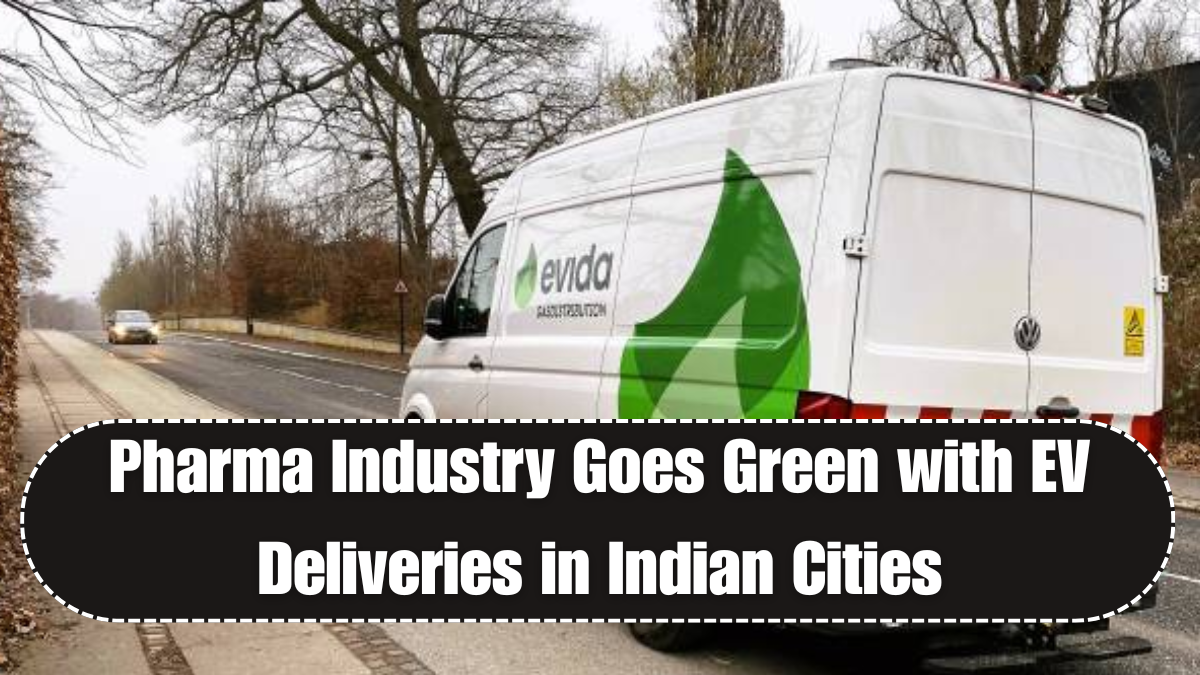In 2025, EV adoption in pharma logistics has become a key highlight of India’s green mobility transformation. Pharmaceutical companies across the country are switching from diesel-powered vans to electric vehicles (EVs) for short-haul delivery of medicines, vaccines, and medical kits—especially in urban areas.
This shift reflects the industry’s growing awareness of climate responsibility, operational efficiency, and regulatory compliance. With increasing urban pollution concerns and fuel price volatility, pharma logistics firms are actively building city-wide EV-based delivery networks that offer sustainability without compromising delivery timelines or cold-chain quality.

Why Pharma Firms Are Going Electric
Electric vehicles offer multiple benefits for pharmaceutical logistics. In metro cities where deliveries are frequent, short-distance, and time-sensitive, EVs are a perfect fit. By embracing EV delivery, pharma brands can optimize cost, improve delivery uptime, and contribute to environmental goals.
Key reasons for this rapid transition include:
-
Lower fuel and maintenance costs
-
Noise-free operations near hospitals and residential areas
-
Government incentives on EV procurement under FAME-II
-
Seamless integration with temperature-controlled cabin systems
-
Increasing availability of urban charging stations
These benefits make EVs highly suited for city fleet deployment, where they operate within a 100 km radius and return to the warehouse for overnight charging.
Leading Cities and Companies Driving the Trend
The EV adoption in pharma logistics is particularly visible in Tier-1 cities like:
-
Mumbai
-
Bengaluru
-
Hyderabad
-
Delhi NCR
-
Chennai
Companies such as Cipla, Sun Pharma, Biocon, and Mankind Pharma are leading the charge. These firms have already electrified a portion of their urban fleets and are scaling further with each quarter.
The EVs used include custom-built refrigerated vans, three-wheelers for last-mile delivery, and even electric two-wheelers for urgent dispatches to clinics and labs.
Green Mobility Meets Medical Responsibility
The pharma industry has long relied on fast delivery systems to uphold medical safety and public health standards. Now, by adopting green mobility strategies, these companies are also playing a role in reducing carbon emissions and environmental degradation.
Here’s how this trend supports dual goals:
-
Cuts down urban air pollution
-
Meets ESG (Environmental, Social, and Governance) mandates
-
Promotes brand image among eco-conscious consumers
-
Aligns with global standards for sustainable medical supply chains
-
Reduces cold-chain disruptions with EV-optimized battery units
With real-time GPS and battery health monitoring, these vehicles also support advanced pharma logistics functions like automated route planning and cargo condition monitoring.
Future Outlook of EVs in Pharma Delivery
The ongoing EV adoption in pharma logistics sets a positive precedent for other industries that depend on reliable urban delivery. As EV infrastructure strengthens and battery efficiency improves, we will continue to see a larger share of pharmaceutical transportation move toward electric.
While 2025 has already marked a major milestone, the trend is firmly established—with long-term benefits for operational costs, regulatory ease, and environmental impact.
FAQs
What is EV adoption in pharma logistics?
It refers to the use of electric vehicles by pharmaceutical companies for delivering medicines, vaccines, and other supplies in urban areas.
Why are pharma companies using EVs for delivery?
EVs offer lower running costs, reduced emissions, and noise-free operations, making them ideal for short-haul deliveries in city environments.
Which cities are leading in this green logistics trend?
Metro cities like Mumbai, Delhi, Chennai, Bengaluru, and Hyderabad are at the forefront of adopting electric delivery fleets.
What kind of vehicles are used for EV delivery?
Pharma firms use refrigerated EV vans, electric three-wheelers, and two-wheelers for various delivery purposes.
How does EV adoption impact pharma logistics positively?
It helps reduce pollution, ensures cold-chain stability, meets environmental goals, and enhances brand value in a sustainability-focused market.
Click here to know more.
